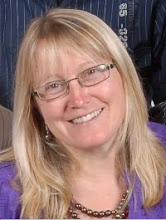Social networking is explained by fatpublisher - web design and development as a social structure made up of relationships and links, whether strong or weak, to people we have something in common with. The article goes on to explain that online networks such as MySpace, Facebook, YouTube, twitter, Linkedin, Bebo, Flickr, Friends Reunited have grown considerably in recent times and they enable people to widen their social networks in regards to their special interests across the world. Social Networking websites are not just for brief informal chats, but the provide an environment for finding information from a trusted source (e.g. a selected colleague on twitter) along with providing a forum for discussion and debate.
http://www.fatpublisher.com.au/resources.php?topic=6&article=14&page=1
Pre ICT510 knowledge of online communities: I have to say my knowledge until recently of online communities probably would not have gone past those that my teenage children (now adults) were involved in. These were mostly online games such as World of Warcraft. They also chatted using hotmail the came Facebook and My Space. Until the last couple of years I only saw online communities being for young people, I didn't realise it catered for all of us (or should I say for people of any age and a variety of interests).
Online communities is explained by BusinessDictionary.com as a frontierless, geographically dispersed community of people and organisations connected via internet or other networks. Preece and Maloney-Krichmar (2005) discuss the rapid change of the definition of communities with the advent of people meeting online. They explain that the term community has changed from being where individuals' interactions took place primarily face-to-face; therefore, social relationships took place with a stable and limited set of individuals (Gergen, 1997:Jones, 1997) to today where community is measured by the quality of relationships, this then allows for the online relationships to be included as communities. These online relatinships may by strong, weak, brief or long standing.
http://www.businessdictionary.com/definition/virtual-community.html
http://jcmc.indiana.edu/vol10/issue4/preece.html
The connection of social networking and online communities: I am part of many social networks and these relationships may overlap as some people I know have connections with people I know in other areas of my life or with people I want to know. My relationships with these people varies considerably depending on the group. These networks are both online and offline or a mixture of both. But more and more I am finding that my social networks are moving online. When I am in a social group online it becomes an online community.What I want to get from ICT510: I like using computers and I always get excited about the way the Internet has and it changing my life. I want to develop a better understanding of what is presentlu available, what is coming and how I can best use it in my role as a teacher. As an educator I am very quickly coming to understand that the Internet is creating a new paradigm in education. I don't want to get left behind.


No comments:
Post a Comment